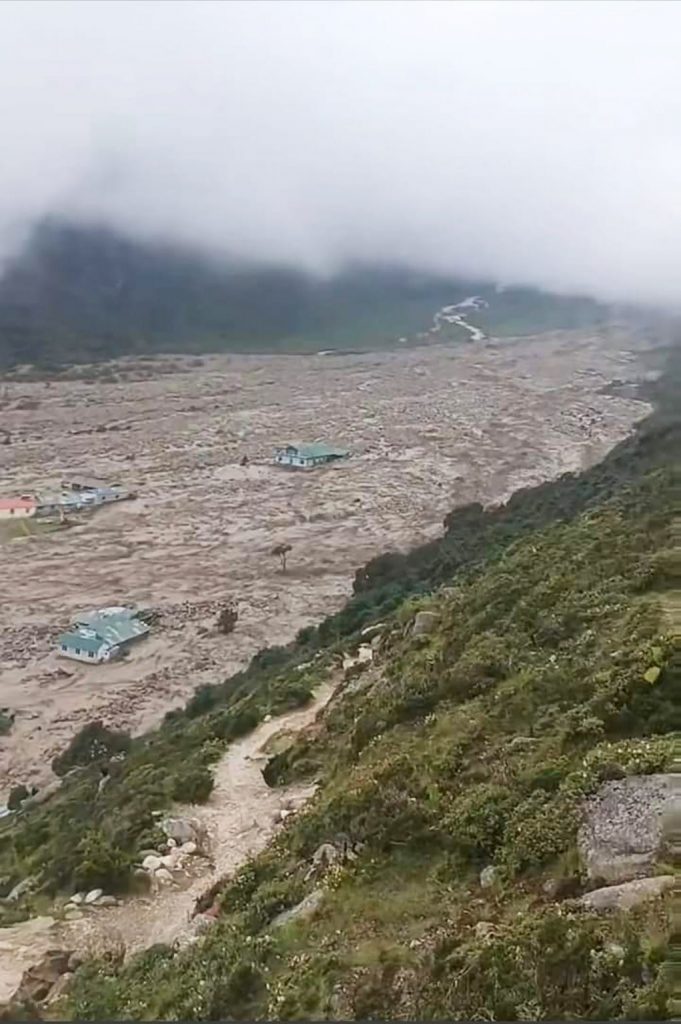Thame faces ongoing climate risks as study urges action after glacial lake flood

March 28, Kathmandu: A study report on the glacial lake outburst flood that struck Thamekhola watershed in Solukhumbu’s Khumbu Pasanglhamu Rural Municipality-5 on July 16, 2024, has been made public. The report highlights that climate-induced natural hazards, such as glacial lake outbursts, continue to pose a significant risk to Thame, urging proactive measures for mitigation.
Dinesh Prasad Bhatt, Executive Chief of the National Disaster Risk Reduction and Management Authority, emphasized the persistent threat of glacial lake outbursts in Thame and other regions. He stressed the need for detailed studies, lessons from past events, and coordinated efforts to minimize future damages while ensuring the safety of at-risk settlements.
Similarly, Arjun Kumar Bam, Joint Secretary at the authority, underscored the ongoing risks in Thame and the importance of comprehensive preparedness. He noted that plans were underway to collaborate with stakeholders to install early warning systems and prioritize studies, alongside ensuring no shortcomings in private housing reconstruction.
Mingma Chhiri Sherpa, Khumbu Pasanglhamu Rural Municipality-5 Chair, called on the federal government to expedite the reconstruction of Thame’s settlements and damaged infrastructure. He highlighted the urgency of timely action, stating that delays in justice were akin to denying it. Sherpa added that local adaptation plans were being developed to address risk management and mitigation, requiring coordination among all levels of government.
Avni Mani Dixit, a senior climate expert from the Asian Development Bank, remarked that the study offers actionable suggestions to avert future risks, which could guide upcoming policies and plans. The Thame glacial lake flood has exposed the complexities of climate risks, with experts advocating for scientific monitoring, engineering solutions, and community awareness to prevent future disasters.
Sudan Bikram Maharjan, a geologist from the International Centre for Integrated Mountain Development (ICIMOD) and a study team representative, warned that glacial lakes in the Thame valley remain hazardous, posing a significant threat of large-scale destruction.
Climate expert Keshav Sharma recommended water management, riverbank protection, and flood control structures in high-risk zones, alongside non-structural measures to strengthen community emergency preparedness. Experts also emphasized the need to bolster monitoring and forecasting systems by establishing hydro-meteorological stations.









Comments